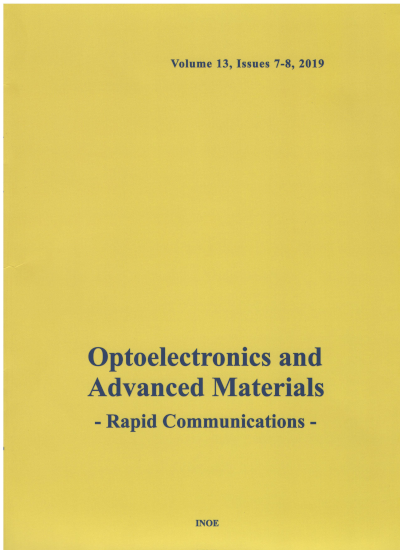The Markov behavior in PERC solar cells based on transient photovoltage process
YIFENG HE1,2,3,*
,
DAVID PEREZ DE LARA1,
XINGZHU WANG1,
YONGGANG GAO1,
DELIN JIN1,
HAIQUAN ZHOU1,
BINGJIE ZHU4,
HUAYU FENG5,6
Affiliation
- Zhejiang Beyondsun Green Energy Technology CO., LTD., Huzhou, Zhejiang, 313200, China
- Zhejiang Beyondsun PV CO., LTD., Huzhou, Zhejiang, 313200, China
- Zhejiang Beyondsun New Energy Development CO., LTD., Huzhou, Zhejiang, 313200, China
- Wuxi Institution of Supervision & Testing on Product Quality, Wuxi, Jiangsu, 214101, China
- CETC Deqing Huaying Electronics CO., LTD., Huzhou, Zhejiang, 313200, China
- College of Materials, Shandong University, Jinan, 250014, China
Abstract
The Passivated Emitter and Rear Cell (PERC) structures were widely applied in the p-Type silicon solar cell with the
advancement of technology. However, the behaviors of carriers in PECRC bulks were difficult to be predicted due to the
Brownian movement and scattering. Here, we have simulated the charge behaviors of PERC based on the Markov Chain in
a transient and open circuit (OC) condition. In OC condition, charge carriers were jumped among various states without
exporting to external circuit. Hence, the Markov Chain can be used to predict the probability of carriers in various states and
then give an expectation of voltage dynamic. In the experimental result, it can be seen that the tendency of voltage was well
fixed with the simulation under thermal equilibrium (T=300 K) condition. Once the equilibrium was broken by the thermal
injection, the increasement of deep-level traps will accelerate the recombination rate. This work can also be applied in other
field such as photo detectors and light emitting diodes (LEDs) to predict the charge behaviors.
Keywords
PERC solar cells, Transient photovoltage, Open circuit recombination, Markov chain.
Citation
YIFENG HE, DAVID PEREZ DE LARA, XINGZHU WANG, YONGGANG GAO, DELIN JIN, HAIQUAN ZHOU, BINGJIE ZHU, HUAYU FENG, The Markov behavior in PERC solar cells based on transient photovoltage process, Optoelectronics and Advanced Materials - Rapid Communications, 17, 1-2, January-February 2023, pp.15-20 (2023).
Submitted at: May 5, 2022
Accepted at: Feb. 6, 2023
